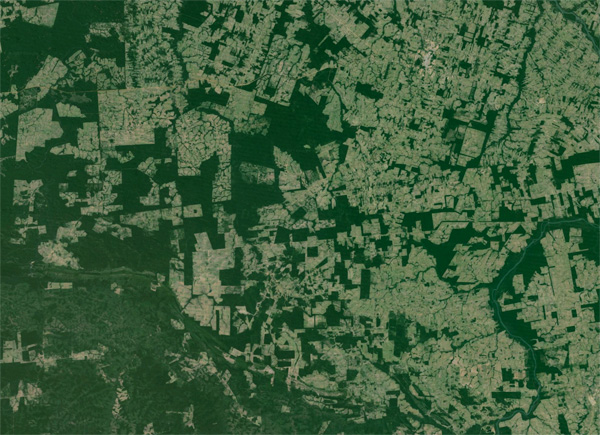January 2014:
If you thought Colorado’s legalization of recreational marijuana sales wasn’t legitimate enough, now state residents can pay for weed with their credit or debit cards. Until now, all marijuana purchases have had to be made using cash. Even medical marijuana users haven’t been allowed to use credit cards, in order to avoid a federal offense. But in the words of a certain cannabis user, the times they are a-changin’. ... Who knows, maybe soon, people could build their entire credit on marijuana buys (though hopefully we won’t see all-consuming weed-driven debt).The Elastic Wallet
Actually, substantial weed-driven debt has existed for close to half a century in the United States. But as with the big increase in marijuana ("pot") agriculture in the USA over the same period, the debt flew under the radar. How?
In the case of pot agriculture the ubiquitous nature of the plant's cultivation -- it can be grown on an industrial scale virtually anywhere near a water source, indoors or outside -- long masked the increasing size of the industry in the United States.
Debt-financed pot purchases were masked by the credit-card culture in the USA. The culture allows Americans to put routine household purchases such as groceries on a credit card, freeing up enough cash to buy all kinds of dope, not just marijuana, on the requisite cash-only basis. If the household budget is so strained during the month that a couple wants to throw a wine and cheese pot party, they can put the wine and cheese purchases on the credit card and pay for the pot in cash.
No surprise, then, that illicit drug use rose in the United States along the same skyrocketing trajectory as credit card consumerism. Large numbers of employed Americans were able to rob Peter to pay Paul, courtesy of the plastic in their wallets. As long as they could pay the minimum balance on their credit cards they could keep using cash from their income to buy dope, despite the illegality and expense of the contraband. And no one was the wiser.
The ability to finance illicit drug purchases through this sleight of hand payment method isn't the only example of faux affluence fueled by credit cards, of course. The situation applies to all kinds of purchases, and is endemic in societies that run on credit-card consumerism.
But from the above we can see it's painting with too broad a brush to blame consumerism, per se, for the ills its critics associate it with. This isn't to say that consumerism doesn't have a problematical aspect, but it is misleading to analyze it as a singular phenomenon. There is consumerism, and credit-fueled consumerism -- and there is credit-fueled consumerism that creates an illusory affluence. That last happens when reliance on the elastic wallet for even the most basic household purchases becomes a way of life.
Faux affluence is the hidden factor in so many social, emotional, and health problems in today's USA that a comprehensive listing would cover many pages. But to a great many questions that begin with, "How can someone on their salary afford to ...?" (play the lottery every day, eat themselves into obesity, spend a small fortune on clothes, etc.) the answer is simply: Because plastic says they can.
The Black Swan is Not in Your Wallet
Yet the most insidious aspect of false affluence is that when credit-financed product demand was decoupled from the need for affordability, this removed the only constraint on industrial consumption of natural resources.
And once customers had little financial incentive to preserve the products they buy, the 'planned obsolence' of car manufacturing became the guiding principle of all retail manufacturing. The obverse is that disposability on an unprecedented scale has become part and parcel of consumerism.
So it's not credit cards, and not consumerism, and not the rising affluence of peoples all around the world. Nor is it the wine and cheese and pot for the party. It's that the party can be bankrolled by people who can't actually afford to purchase stuff that won't last the evening. But when you come right down to it, the mother of all Black Swan events is hiding in your head.
Is it Possible to Avert a Catastrophe?
No, but humanity can try to shift its stance a bit so it's not a body blow. We do have a slender advantage. It's the amazing satellite technologies that scientists and mathematicians have learned in this century to use to figure out how much water and other key natural resources we've got left on our present course.
Talk about the Eleventh Hour. But while this shouldn't be read as a recrimination -- it's human to err -- by focusing on greenhouse gases as the greatest immediate threat, many governments have lost a great deal of time that they might not be able to make up.
Can individual, private efforts cover the shortfall? What would be the alternative if the answer is no? We have to try, and that's my best answer.
Part of the trying, I think, is to develop a standard of affluence that isn't unwittingly so greatly dependent on disposability. People used to say with pride that they'd had a raincoat or wool suit for 20 years. Quality, and the durability that went with it, were greatly admired, a badge of excellence and by reflection an indication that the customer was intelligent.
In short, replace as much as possible disposability with durability.
Yet calls for a return to durability have been shouted down by those who equate faux affluence with national prosperity. If you can hold onto your car and trench coat for 20 years, the argument goes, what about all those people whose jobs depend on disposability?
That's sort of a moot question in this era, isn't it, when you can lose your job to a robot.
That's enough sugar coating. Here are a couple snapshots of what we're facing right now. This Mother Jones report and accompanying video are a small but clear window on the incredible harm pot farming has done to California's forests, soil, watersheds, rivers, streams, and wildlife. How Industrial Pot Growers Ravage the Land: A Google Earth Tour; February 6, 2013.
Another Snapshot
Fragments of forest in the agricultural landscape around Sinop, Brazil, an area where soybean farming and cattle ranching have expanded at the expense of the Amazon rainforest. Image courtesy of Google Earth.
Image and text from Monga Bay's March 24 summary of a satellite-based study published March 20. Before the satellite data became publicly available no one outside a small group of researchers knew with any exactness the extent of forest fragmentation around the world. Now we know. From Yale's e-360 summary of the study:
Fragmentation of the world’s forests has become so severe that 70 percent of remaining woodlands are now within 1 kilometer of a road or other form of development, according to a new study. Using the world’s first high-resolution satellite map of tree cover, as well as an analysis of seven long-term fragmentation studies, researchers showed that the ongoing destruction of global forests is decreasing biodiversity by as much as 75 percent in some areas and adversely affecting the ability of forests to store carbon and produce clean water. The study, published in the journal Science Advances, found that 20 percent of the world’s forests are just 100 meters from a human-created “edge.” Even many parks and protected areas have undergone fragmentation.
The few remaining large, virgin tracts of forest can be found in parts of the Amazon, Siberia, Congo, and Papua New Guinea, the study said. [...]So no need to ask why the Amazon's flying rivers have disappeared.
What happens if those vast skyborne rivers of moisture don't return? What happens if more flying rivers rising from other fragmented forests vanish? That's something we don't know at present; too many unknowns to call it. Again, the best we can do in our blindfolded state is try.
********


No comments:
Post a Comment